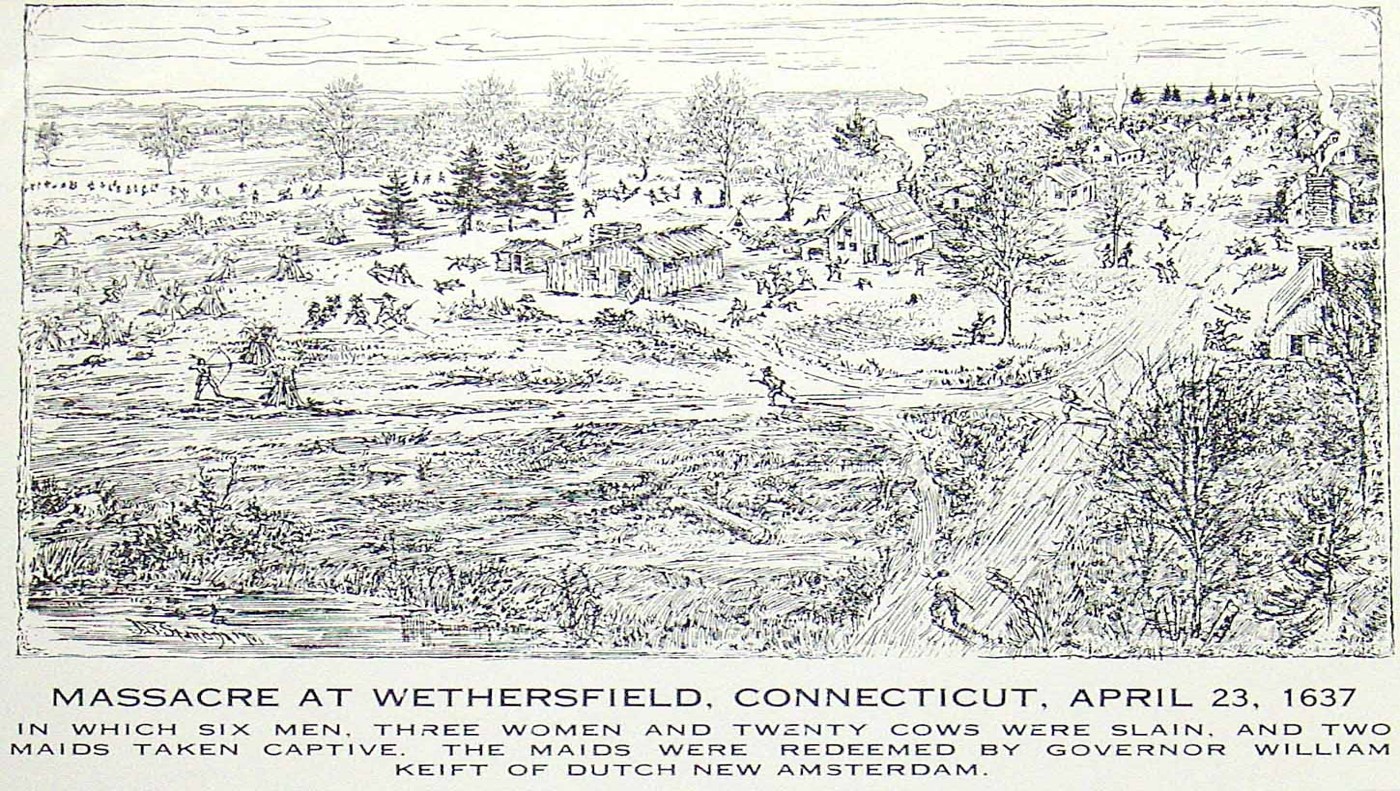
WDS Lecture
October 10, 6:30pm. Battlefield Archaeology & Wethersfield in the Pequot War
Kevin McBride, associate professor of anthropology at the University of Connecticut, says the Pequot attack on Wethersfield, Connecticut, in 1637, was the most significant event of the Pequot War and led to Connecticut’s declaration of war against the Pequot tribe a week later. McBride will explore the implications of the attack and its connection to recent archeological work performed at the Webb-Deane-Stevens (WDS) Museum on Thursday, October 10, 2019, at 6:30 p.m. The presentation will be preceded by a wine reception, by donation, at 6 p.m. in the Webb Barn. Admission is free for members, $5 for nonmembers, payable at the door.
According to McBride, the Wethersfield attack and subsequent battles led to the defeat of the Pequot two months later. He maintains that the Wethersfield raid reveals much about Pequot strategy and tactics during the war that have largely been ignored in most histories of the war.
The battlefield archaeology of the Pequot War will also be discussed, and how the archaeology associated with the war provides important new insights on the nature and course of the war.
McBride notes that the WDS archeological site is very important because it is contemporaneous with the Pequot War and tells much about the lives of the English in Wethersfield during that period. He explains that the palisade that was unearthed in the dig speaks to the fear of attack by the Pequot and reflects the conditions the settlers were living under. There were also trade goods recovered that indicates the Wethersfield relations with the local Native Americans was not rocky and led to the Pequot raid on Wethersfield.
About Kevin McBride
McBride is an associate professor of anthropology at the University of Connecticut and has conducted archaeological investigations throughout southern New England, the Caribbean, Baja Mexico, and Portugal. He has focused on the battlefield archaeology of the Pequot War (1636-1637), King Philip’s War (1675-1676), and the War of 1812 in recent years. His interests also include cultural landscapes and the built environment, Native American maritime adaptations, underwater archaeology, and early 17th-century Native American-European trade. He has written numerous articles on topics ranging from early maize agriculture, Native American-colonial warfare, the impact of the fur and wampum trade on Native American societies, and the evolution of Native American warfare in southern New England.
McBride is a member of the Society for American Archaeology, the American Anthropological Association, the Society for Historic Archaeology and the Society for American Ethnohistory and Adjunct Faculty at the Institute for Exploration. He was formerly the Director of Research at the Mashantucket Pequot Museum, and a former member of the Board of Directors of the Connecticut Museum of Natural History and of the Governor’s Task Force on Indian Affairs.
About the Webb-Deane-Stevens Museum
Located in the heart of Connecticut’s largest historic district, the Webb-Deane-Stevens Museum provides the quintessential New England experience – from the American Revolution to the early 20th century. Tours include the 1752 Joseph Webb House, where General George Washington met with French General Rochambeau and planned the military campaign leading to the end of the Revolutionary War, the 1770 Silas Deane House, built for America’s first diplomat to France, and the 1788 Isaac Stevens House, which depicts Connecticut life in the 18th and 19th centuries. For more information visit: www.webb-deane-stevens.org or call (860) 529-0612. Like us on Facebook: https://www.facebook.com/WDSMUSEUM.

